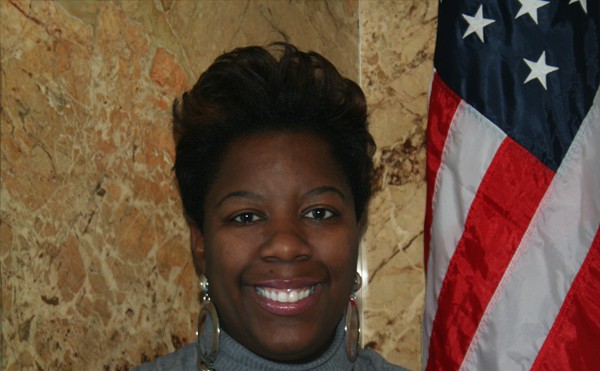Mordechai Vanunu is a hero to some, a traitor to others, but to Detroit's small but dedicated Amnesty International chapter, he is just a man who has been in prison for 13 years, most of it in solitary, and who now, his knowledge hopelessly out of date and his sanity starting to look shaky, ought to be set free.
Thirteen years ago, he provided information on Israel's top-secret nuclear weapons program to the Sunday Times of London. Vanunu had worked at the atomic research reactor at Dimona from 1977 to 1985.
What he gave the newspaper proved what had long been rumored (and has still never been officially acknowledged): Israel not only has the bomb but is running a major nuclear military program, the sixth-largest in the world.
The stories appeared in the Times on Oct. 5, 1986. But by then, Vanunu was in no position to read them. He had been kidnapped in Italy, taken to Israel, tried in secret, convicted of treason and aggravated espionage, and sentenced to 18 years.
Was Vanunu a traitor? He had promised never to reveal his nation's nuclear secrets as a condition of employment. Was he a lonely hero, bringing the truth to a world endangered by nuclear proliferation?
"This is not as easy a case as some we've had in the past," sighed Ken Grunow, who, with his wife Mary Geraldine, has run Detroit's Amnesty group for nearly 20 years. "Yet he is still a man who we think has suffered more than enough."
When they started working for Amnesty in the mid-'70s, after two stints volunteering as teachers in Ghana, the issues were usually sharper. Then, most of the prisoners of conscience Amnesty International (AI) worked to help had been wronged by brutal governments simply for speaking the truth, belonging to a particular ethnic group or expressing their desire for a better life.
Some were young, pro-democracy men and women imprisoned and tortured by brutal South American regimes in places such as Argentina and Chile. Others were novelists and poets in the stagnant totalitarian societies of the Soviet Union and Eastern Europe.
That was the world that had led a British lawyer to start Amnesty International in 1961. The goals were simple: First, to work to free all prisoners of conscience anywhere who have neither used nor called for violence. Beyond that, Amnesty also called for fair trials for political prisoners, and to abolish the death penalty and torture.
They mainly did this by writing as many letters as possible to those responsible. Those who scoffed were often astonished by how often bureaucratic regimes, deluged by paper, responded by making the prisoner's life better, even releasing them, just to stop the letters – and the bad publicity.
That led to Amnesty International winning the Nobel Peace Prize in 1977, and for a few years, it was very much in vogue. Yet fashions changed; dictatorships fell; Americans turned inward. Sometimes now barely a half-dozen take part in the monthly meetings, usually at Sacred Heart Seminary, though there are always Ken and Geraldine.
"We asked at last month's meeting if anyone wanted to seize power," Ken said drolly, as Geraldine, whose voice still has the lilt of her native Scotland, laughed.
Amnesty members won't let the best thing the local chapter has going off the hook that easily. The Grunows are the kind of people everyone should meet just when they are on the point of despairing about the human race.
Not preachy, not smug, not some sort of bizarre saints, they always have felt it their job to try and make this world a better place, from the time she was a pharmacist's daughter in Edinburgh, and he was growing up in Detroit.
Actually, though they modestly don't say so, AI may well be needed more than ever, in this present chaotic world, where superpowers no longer call most of the shots, and good and bad guys are sometimes hard to tell apart.
There have been times when no matter how many letters they wrote, there was no response from stolid prison authorities or central governments. There have been times when they have gotten word that a particular prisoner they have worked for has died.
But there have been days when their letters came back stamped "Not deliverable. Prisoner released." There have been occasional letters from prisoners who have told how much the letters have meant.
"Today I am out of prison because your efforts and those of others saved me from the gallows," Koigi na Wamwere, of Kenya, wrote to AI from Norway in 1997. "You must speak for us. We all look up to you to give the innocent a voice."
They mean to keep trying. Friday, Dec. 10, AI's Detroit chapter is inviting us all to a party at the First Unitarian-Universalist Church House, 4605 Cass, to celebrate the 51st anniversary of the signing of the United Nations' Declaration of Human Rights.
That's a powerful document, so powerful many signers have failed to live up to it. "Everyone's talking about Y2K compliant," noted Geraldine. "We need to get 1948 compliant." There will be music, cake, candles for sale, brief updates on what you can do and a candlelight vigil for the victims of human-rights abuses.
You might want to come, even if you live in a country that would never dream of trying a mentally deficient child as an adult for murder. You just never know.





